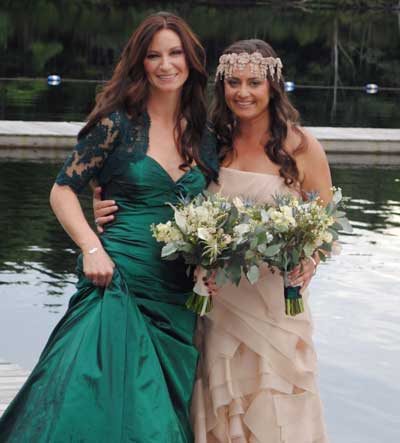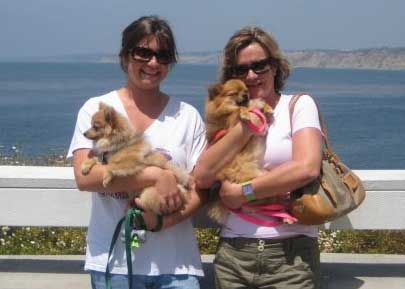Two years before we were married, my wife Sam watched her mom die.
At Sam’s mom’s funeral I sat in the front pew with the family. Of course I did. Her mother was my family, too. Or at least she was supposed to be.
She was my future mother-in-law. I’d planned to call her Ma, which would make her laugh. She couldn’t wait for the wedding. She wanted grandchildren, and would be competitive with my own mother for their affections —this we knew. But as Sam and I got close to getting engaged, planning a wedding and thinking about starting a family of our own, our lives were stopped short. Death disrupts everything.
I’m inclined to tell people she died suddenly, but what is sudden, anyway? By Christmas we knew something was wrong with her brain. A viral infection, they told us, with some long and dour name. Don’t Google it, they said. But we did. That’s how we knew this virus would kill her. A powder keg of one-in-a-million chances, her illness and death were packed into one quick burst of tragedy that spanned just a few short months. She was dead by Easter.
Before she knew she was dying she lost the ability to speak, to see, and say goodbye to her family. If closure is a thing that some people get, Sam is not one of them. We were at the center of the explosion. I was blinded by debris, knowing, all the while, that I was a first-responder. Sam was my responsibility.
Related
The natural order of things dictates we bury our parents, but there was nothing natural about my then 26-year-old girlfriend watching her mom die. I don’t know how to tell people when they ask about loss, that watching Sam lose her mom is the greatest sorrow I have ever known. I called it second-hand grief.
Initially we buried ourselves, with our dogs, under the white down comforter on our bed. We wore pajamas. We watched TV and ate take-out. We hid this way until we couldn’t any longer, until we reached that time the rest of the world deems appropriate to get back to real life. Only we knew there’s no going back to something that’s been taken from you. Friends whispered, “How’s she doing?” I wanted to say, “We’re broken.” Instead I shrugged and said, “She’ll be okay.”
I realize why some couples can’t sustain. The heart of the relationship is pierced by shrapnel. If not blown apart entirely, it’s certainly damaged. I had moments when Sam’s grief and my own sadness overshadowed my ability to be dependable.
I wanted to think logically: Her mom died, mine did not. I wanted it to be that simple, but I’d lost faith in logic. To watch her suffer—this girl I loved, for whom I would do anything—was paralyzing. I was helpless. But I remained. When everything I said sounded stupid and everything I did felt wrong, being there was right.
Knowing that we were in this for the long run allowed us to be our raw and damaged selves. In the months following her mother’s death Sam and I fought. Yelling made us feel, and feeling meant we were alive. So we yelled in front of friends, at dinner, on the street. There was never the fear that she might leave me. There was never the feeling that I wanted to go. There was something new instead, the stifling realization that the love of my life might never be happy again.
That was a scary thought to confront. I had to ask myself, “Can I spend my life with someone who may never be happy again?” The answer was always, keep going. When Sam caught herself smiling or laughing and she felt guilty, I reminded her, “Your mom only ever wanted your happiness.”
“Sometimes I miss her so much that I have to say it.” Sam apologizes. She doesn’t want to make people uncomfortable by bringing up her mother’s death, so when she has to say it, when she misses her mom so much she doesn’t want to breathe any longer — like last year, on our wedding day, when Sam felt her loss more than ever — I’m there to hear the words. She can scream. Or just sigh. I’ll listen. We talk openly. We can say anything. We can even be happy.
When Sam lost her mom my emotions were the mirror image of her own. The anguish I felt was eclipsed only by the knowledge that I had to be the strong one, and if I’m being honest, I wasn’t always so strong. I didn’t toss Sam over my shoulder and carry her through her grief. Instead I held her hand and we went through it together.
Laura Leigh Abby is a writer in New York City where she lives with her wife and their two Pomeranians. She is currently developing her blog, 2brides2be.com into a wedding resource for lesbian brides. Find her on twitter: @lauraleighabby and read more of her work here.













